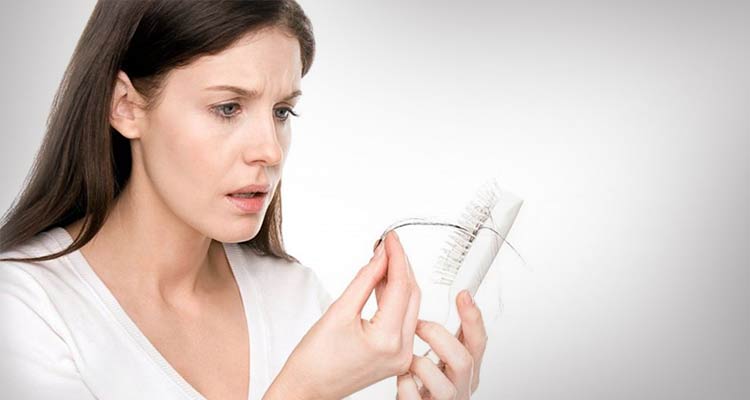FindItMore | Hair fall is a day-to-day hue and cry for almost everyone. Men and women complain of hair loss equally. It is quite common and there is nothing much serious to worry about, as it is the body’s natural way to shed off old hair and replace it with new hair growth. You might notice falling of hair while shampooing, combing, or oiling. But an excessive amount of hair fall should not be ignored and you should consider meeting a doctor to get to know the cause of the hair fall and get treated for the same.
How much hair fall is normal?
It is quite normal to lose a few hairs every day. We have around 100,000 to 150,000 strands of hair on our scalp. Doctors have a view that losing 50 to 100 hair is not a matter of concern. While brushing the hair or taking a shower, a few of them might get washed, only to be replaced later. But if the hair fall is more and there are other noticeable symptoms as well, then you must see a doctor. You can choose to consult a trichologist online and proceed as suggested for tests or another course of treatment.
Warning signs in hair fall
Most of us, though complain of hair fall every day, are usually not sure as when to see a doctor for this problem. Moderate hair fall does not need any treatment except for some cosmetic purpose. But you should talk to a trichologist, if you witness any of the below symptoms.
- Sudden or unexplained hair loss
- Hair fall in large volume
- Hair fall with itching, redness and pain in the scalp
- Excessive hair fall during menstruation
- Hair fall along with excessive fatigue and swollen lymph nodes
- Hair fall during a course of medication
- Hair loss in patches
- Loss of hair on the body
- Hair fall with rapid weight loss or anemia
Hair fall mostly runs in genes, still, emotional and health-related factors can trigger the condition. Male and female pattern baldness runs in families and they are related to hormonal changes inside the body. By the time of menopause, the fair fall in women increases. However, there are medication and cosmetic procedures which can help with the problem.
Causes of hair fall
There are many different causes for hair fall. From genetic factors to your lifestyle, everything plays a role in this condition. A few reasons for hair fall are listed below:
- Your hair is not getting the right treatment. Pollution and changed lifestyle along with a poor diet take a toll on your locks. It is very important as what you are feeding to your hair, both internally and externally. The topical treatment along with the food you eat matters. A deficiency in your diet and poor hair care with products that don’t suit your hair can cause of hair fall.
- Hormonal changes associated with pregnancy, childbirth, menopause and birth pills can lead to temporary hair loss.
- Major illnesses, surgeries, and traumatic events can cause hair loss which can be regained without any treatment after some time.
- Hereditary male or female pattern hair loss where genes play the role.
- Medical condition can cause hair loss like thyroid problems, alopecia areata, high fever, and autoimmune diseases.
- Fungal infections can lead to hair fall, however, they can be treated well.
- Medication for certain diseases like cancer, high blood pressure, arthritis, depression, and heart problems can cause hair fall.
- Physical or emotional shock, stress and lack of proper sleep can also trigger hair loss.
Which doctor should you consult for hair fall?
Since there are various causes of hair fall, the doctor you consult for treatment may also vary. It is important to find out the cause of the hair fall to initiate the right treatment. You might need to see a dermatologist or an endocrinologist to address the root cause of the problem. However, your first point of contact should be a trichologist who would run several tests on you to find out the root cause.
Blood tests, pull test, scalp biopsy, and light microscopy are a few tests that would throw light on the cause of the hair fall as well as its type. These tests would help to get an idea of how serious the condition is. The treatment is needed for the scalp, hair follicle or hair shaft can be determined based on these test reports. Once the doctor is sure, a course of treatment can be planned that might include oral medications, topical applications as well as certain procedures.
Do not wait for your locks to disappear. It is better to seek experts help instead of showing verbal concerns for hair fall every day. Sometimes slightest suggestion from a doctor work wonder and you get big relief. So, don’t take chance with your hair and meet a doctor as early as possible. Now, with technology at your service, you can easily book appointment for an online consultation with a trichologist of your choice based at any location.


